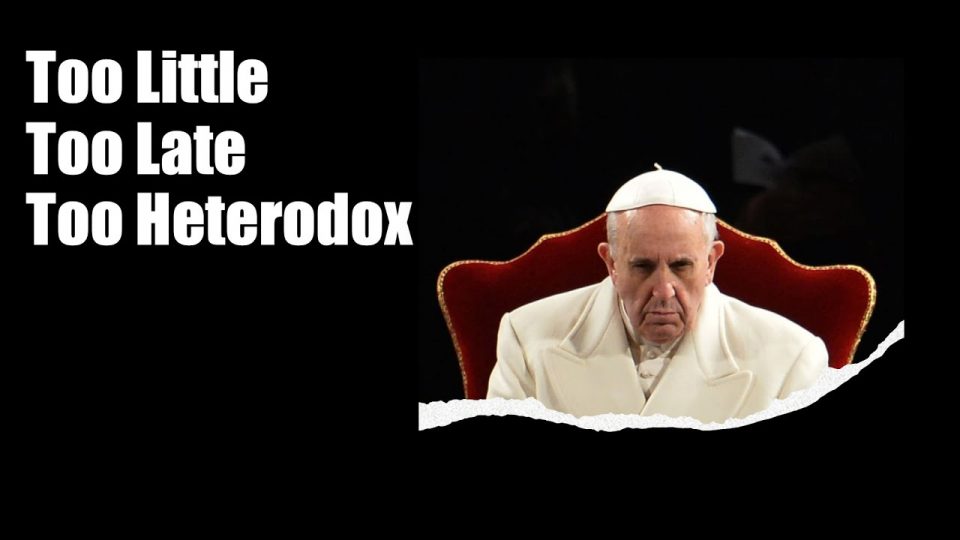23 “Woe to you, scribes and Pharisees, hypocrites! for you tithe mint and dill and cummin, and have neglected the weightier matters of the law, justice and mercy and faith; these you ought to have done, without neglecting the others. 24 You blind guides, straining out a gnat and swallowing a camel! 25 “Woe to you, scribes and Pharisees, hypocrites! for you cleanse the outside of the cup and of the plate, but inside they are full of extortion and rapacity. 26 You blind Pharisee! first cleanse the inside of the cup and of the plate, that the outside also may be clean.
Meditation: Do you allow any blind-spots to blur your vision of God’s kingdom and his ways? Jesus went to the heart of the matter when he called the religious leaders of his day blind Pharisees and hypocrites! A hypocrite is an actor or imposter who says one thing but does the opposite or who puts on an outward appearance of doing good while inwardly clinging to wrong attitudes, selfish desires and ambitions, or bad intentions. Many scribes and Pharisees had made it a regular practice to publicly put on a good show of outward zeal and piety with the intention of winning greater honors, privileges, and favors among the people. Jesus had a very good reason for severely rebuking the scribes and Pharisees, the religious teachers and leaders, for misleading people and neglecting the heart and essence of God’s law – love of God and love of neighbor
What forms our outward practices and habits?
The scribes in particular devoted their whole lives to the study of God’s law contained in the five books of Moses (Torah). As the religious experts of their day, they took great pride in their knowledge and outward observance of the commandments and precepts of the law of Moses. They further divided the 613 precepts of the Law of Mosesinto thousands of tiny rules and regulations. They were so exacting in their interpretations and in trying to live them out, that they had little time for much else. By the time they finished compiling their interpretations it took no less than fifty volumes to contain them! Jesus chastised them for neglecting the more important matters of religion, such as justice and the love of God. In their misguided zeal they had lost sight of God and of his purpose for the law.
God’s law of love reveals what is truly important and necessary
Jesus used the example of tithing to show how far they had missed the mark. God had commanded a tithe of the first fruits of one’s labor as an expression of thanksgiving and honor for his providential care for his people (Deuteronomy 14:22; Leviticus 27:30). The scribes, however, went to extreme lengths to tithe on insignificant things (such as tiny plants) with great mathematical accuracy. They were very attentive to minute matters of little importance, but they neglected to care for the needy and the weak. Jesus admonished them because their hearts were not right. They were filled with pride and contempt for others who were not like themselves. They put unnecessary burdens on others while neglecting to show charity, especially to the weak and the poor.
The scribes and Pharisees meticulously went through the outward observance of their religious duties and practices while forgetting the realities of God’s intention and purpose for the law – his love and righteousness (justice and goodness). Jesus used a humorous example to show how out of proportion matters had gotten with them. Gnats were considered the smallest of insects and camels were considered the largest of animals in Palestine. Both were considered ritually impure. The scribes went to great lengths to avoid contact with gnats, even to the point of straining the wine cup with a fine cloth lest they accidentally swallowed a gnat. The stark contrast must have drawn chuckles as well as groans.
God’s love shapes our minds and transforms our hearts and actions
What was the point of Jesus’ humorous and important lesson? The essence of God’s commandments is rooted in love – love of God and love of neighbor, righteousness (justice and goodness), and mercy. God is love and everything he does, including his justice and goodness, flows from his love for us. True love is costly and sacrificial – it both embraces and lifts the burdens of others. Do you allow the love of God to shape and transform the way you live your daily life – including the way you think of others, speak of them, and treat them?
Lord Jesus, fill me with your love and mercy that I may always think, speak, and treat others with fairness, loving-kindness, patience, and goodness.
Psalm 139:1-6
1 O LORD, you have searched me and known me!
2 You know when I sit down and when I rise up; you discern my thoughts from afar.
3 You search out my path and my lying down, and are acquainted with all my ways.
4 Even before a word is on my tongue, lo, O LORD, you know it altogether.
5 You beset me behind and before, and lay your hand upon me.
6 Such knowledge is too wonderful for me; it is high, I cannot attain it.







